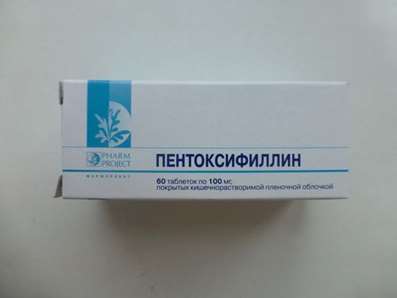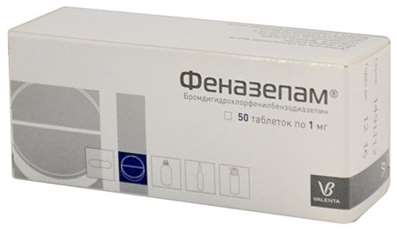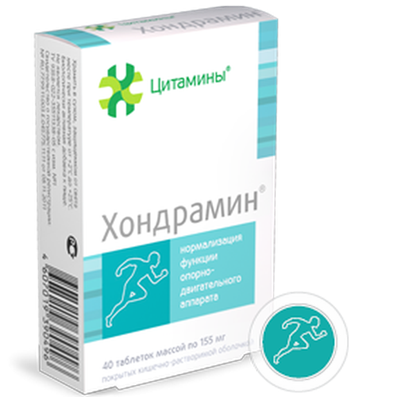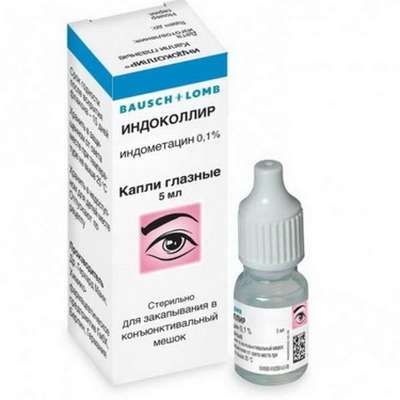Instruction for use: Nise
I want this, give me price
Active substance Nimesulide
Indications
Granules for suspension for oral administration
Acute pain (pain in the back, lower back, pain syndrome in the pathology of the musculoskeletal system, including trauma, sprains and joints, tendenitis, bursitis, toothache), symptomatic treatment of osteoarthritis with pain syndrome, algodismenorea.
Pills
Rheumatoid arthritis, articular syndrome with exacerbation of gout, psoriatic arthritis, ankylosing spondylitis, osteochondrosis with radicular syndrome, osteoarthritis, myalgia of rheumatic and non-rheumatic genesis, inflammation of ligaments, tendons, bursitis, incl. posttraumatic inflammation of soft tissues, pain syndrome of various genesis (including in the postoperative period, with trauma, algodismenorea, toothache, headache, arthralgia, lumboeishalgia).
Gel for external use
Acute and chronic inflammatory diseases of the musculoskeletal system (articular syndrome with exacerbation of gout, rheumatoid arthritis, psoriatic arthritis, ankylosing spondylitis, osteoarthritis, osteochondrosis with radicular syndrome, sciatica, inflammatory defeat of ligaments and tendons, bursitis, sciatica, lumbago), muscular pain of rheumatic and non-rheumatic origin, post-traumatic inflammation of soft tissues and the musculoskeletal system (injuries and ligament ruptures, bruises).
In all dosage forms, nimesulide is intended for symptomatic therapy, reducing pain and inflammation at the time of use, and does not affect the progression of the disease.
Contraindications
Granules for oral suspension, tablets
Hypersensitivity, a complete or incomplete combination of bronchial asthma, recurrent nasal polyposis or paranasal sinuses and intolerance to acetylsalicylic acid and other NSAIDs (including in the anamnesis), erosive and ulcerative changes in the mucous membrane of the stomach and duodenum, active gastrointestinal bleeding, cerebrovascular or other bleeding, inflammatory bowel disease (Crohn's disease, ulcerative colitis) in the phase of exacerbation, hemophilia and other disorders of blood coagulability, decompensated heart liver failure, or any active liver disease, anamnestic data on the development of hepatotoxic reactions with nimesulide, alcoholism, drug addiction, severe renal failure (Cl creatinine <30 ml / min), progressive kidney disease, confirmed hyperkalemia, post-coronary artery bypass grafting , simultaneous reception of other hepatotoxic drugs, pregnancy and the period of breastfeeding, children under 12 years.
Gel for external use
Hypersensitivity, incl. to other NSAIDs, a complete or incomplete combination of bronchial asthma, recurrent nasal polyposis and paranasal sinuses and intolerance to acetylsalicylic acid or other NSAIDs (in the anamnesis), erosive and ulcerative lesions of the gastrointestinal tract in the acute stage, dermatosis, epidermal damage and skin infection in the area of application, renal failure of severe degree (Cl creatinine <30 ml / min), severe hepatic insufficiency, pregnancy and breast-feeding period, children under 12 years.
pregnancy and lactation
The use of nimesulide is contraindicated in pregnancy and during breastfeeding. If breastfeeding is necessary, breastfeeding should be discontinued.
The use of nimesulide may adversely affect fertility in women and is not recommended for women planning a pregnancy.
Side effects
The incidence of adverse reactions is classified as follows: very often (> 1/10); often (≥1 / 100, <1/10); infrequently (≥1 / 1000, <1/100); rarely (≥1 / 10000, <1/1000); very rarely (<1/10000); the frequency is unknown (the frequency can not be calculated from the available data).
Granules for oral suspension, tablets
From the blood and lymphatic system: rarely - anemia, eosinophilia; very rarely - thrombocytopenia, agranulocytosis, pancytopenia, purpura thrombocytopenic.
Allergic reactions: rarely - hypersensitivity reactions; very rarely anaphylactoid reactions.
From the skin and subcutaneous tissues: infrequently - itching, rash, increased sweating; rarely - erythema, dermatitis; very rarely - urticaria, angioedema, swelling of the face, multiforme exudative erythema, incl. Stevens-Johnson syndrome, toxic epidermal necrolysis (Lyell's syndrome).
From the side of the central nervous system: infrequently - dizziness; rarely - a sense of fear, nervousness, nightmarish dreams; very rarely - headache, drowsiness, encephalopathy (Reye's syndrome).
From the senses: rarely - blurred vision.
From the CCC: infrequent - increased blood pressure; rarely - tachycardia, lability of blood pressure, hot flashes, sensation of palpitations.
From the respiratory system: infrequently - shortness of breath; very rarely - exacerbation of bronchial asthma, bronchospasm.
From the digestive tract (gastrointestinal tract): often - diarrhea, nausea, vomiting; infrequently - constipation, flatulence, gastritis; very rarely - abdominal pain, dyspepsia, stomatitis, tarry stool, gastrointestinal bleeding, ulceration of the mucosa and / or perforation of the stomach or duodenum.
From the side of the liver and biliary tract: often - an increase in the level of hepatic transaminases; very rarely - hepatitis, fulminant hepatitis, jaundice, cholestasis.
From the side of the kidneys and urinary tract: rarely - dysuria, hematuria, urinary retention, hyperkalemia; very rarely - renal failure, oliguria, interstitial nephritis.
General disorders: infrequent - edema; rarely - malaise, asthenia; very rarely - hypothermia.
Gel for external use
From the skin and subcutaneous tissues: infrequently - itching, burning, swelling; very rarely - moderate or severe skin irritation, hyperemia, rash, desquamation, peeling, erythema.
With external use of nimesulide, the occurrence of systemic side effects is lower than with oral administration. However, one should keep in mind the possibility of systemic side effects if nimesulide is used in large areas for a long time and at high doses.
Precautionary measures
Granules for oral suspension, tablets
Nimesulide should be used with caution in patients with gastrointestinal ailments in history (ulcerative colitis, Crohn's disease), as possible exacerbation of these diseases.
The risk of gastrointestinal bleeding, ulcers / perforations of the stomach or duodenum increases with an increase in the dose of NSAIDs in patients with a history of stomach ulcer or duodenal ulcer, especially complicated by bleeding or perforation, and in elderly patients, so treatment should be started with the least possible dose. In patients receiving drugs, reducing blood clotting or suppressing platelet aggregation, the risk of gastrointestinal bleeding also increases. In the event of gastrointestinal bleeding or gastric or duodenal ulcers in patients taking nimesulide, treatment should be discontinued.
When nimesulide is used for more than 2 weeks, it is necessary to monitor the liver function (activity of hepatic transaminases).
If signs of liver damage (itchy skin, yellowing of the skin, nausea, vomiting, abdominal pain, darkening of the urine, increased activity of liver transaminases), stop taking nimesulide and consult your doctor.
Patients with hypertension, cardiac disorders, cerebrovascular diseases nimesulide should be administered with caution. If the condition worsens, treatment with nimesulide should be discontinued.
Since nimesulide is partially excreted by the kidneys, its dose for patients with impaired renal function should be reduced depending on the creatinine clearance values. In case of impaired renal function, nimesulide should be discontinued.
Nimesulide can alter the properties of platelets, so care must be taken when using it in people with hemorrhagic diathesis, but nimesulide does not replace the preventive effect of acetylsalicylic acid in cardiovascular diseases.
During treatment with nimesulide, it is recommended to avoid simultaneous use of hepatotoxic drugs, analgesics, other NSAIDs (with the exception of low doses of acetylsalicylic acid used in antiplatelet doses) and the use of ethanol.
Elderly patients are particularly prone to adverse reactions to NSAIDs, incl. risk of gastrointestinal bleeding and perforations of the gastrointestinal tract, threatening the patient's life, as well as worsening of kidney, liver and heart function. When taking nimesulide in this category of patients requires regular clinical monitoring of their condition.
The risk of gastrointestinal bleeding, ulcers, or perforations is increased when taking high doses of nimesulide, in patients with a stomach ulcer or duodenal ulcer in the anamnesis, in the elderly. These patients should begin treatment with the lowest dose. In these patients, as well as individuals who take nimesulide in conjunction with cardiac doses of acetylsalicylic acid, combined therapy with gastroprotectors (proton pump inhibitors or misoprostol) should be used.
To reduce the risk of adverse events, a minimally effective dose of nimesulide should be used with the minimum possible short course.
Impact on the ability to manage vehicles and mechanisms. The influence of nimesulide on the ability to drive vehicles and control mechanisms has not been studied, therefore, during the treatment period, care should be taken when driving vehicles and engaging in potentially dangerous activities that require an increased concentration of attention and speed of psychomotor reactions.
Gel for external use
Do not apply gel on mucous membranes, eyes, damaged and infected skin areas affected by skin diseases of the area and open wounds. After applying the gel, wash your hands with soap and water. Do not apply an occlusive dressing after applying the gel.
When nimesulide is applied in the form of a gel, an intense burning sensation may occur, which disappears for several days. During the application of the gel and before cleaning hands should not touch sensitive areas of the skin. If you accidentally get the gel on the mucous membranes or sensitive areas of the skin, you should rinse them with plenty of water.
Influence on the ability to drive vehicles, mechanisms. The use of nimesulide in the form of a gel does not affect the ability to drive vehicles and mechanisms.
special instructions
Granules for suspension for oral administration
Since nimesulide in the form of granules contains sucrose (0.15-0.18 XE per 100 mg), this should be taken into account for patients suffering from diabetes mellitus and those who follow a low-calorie diet.
Nimesulide in the form of granules is not recommended for patients with rare hereditary diseases of intolerance to fructose, malabsorption of glucose-galactose or insufficiency of sucrose-isomaltase.

 Cart
Cart





